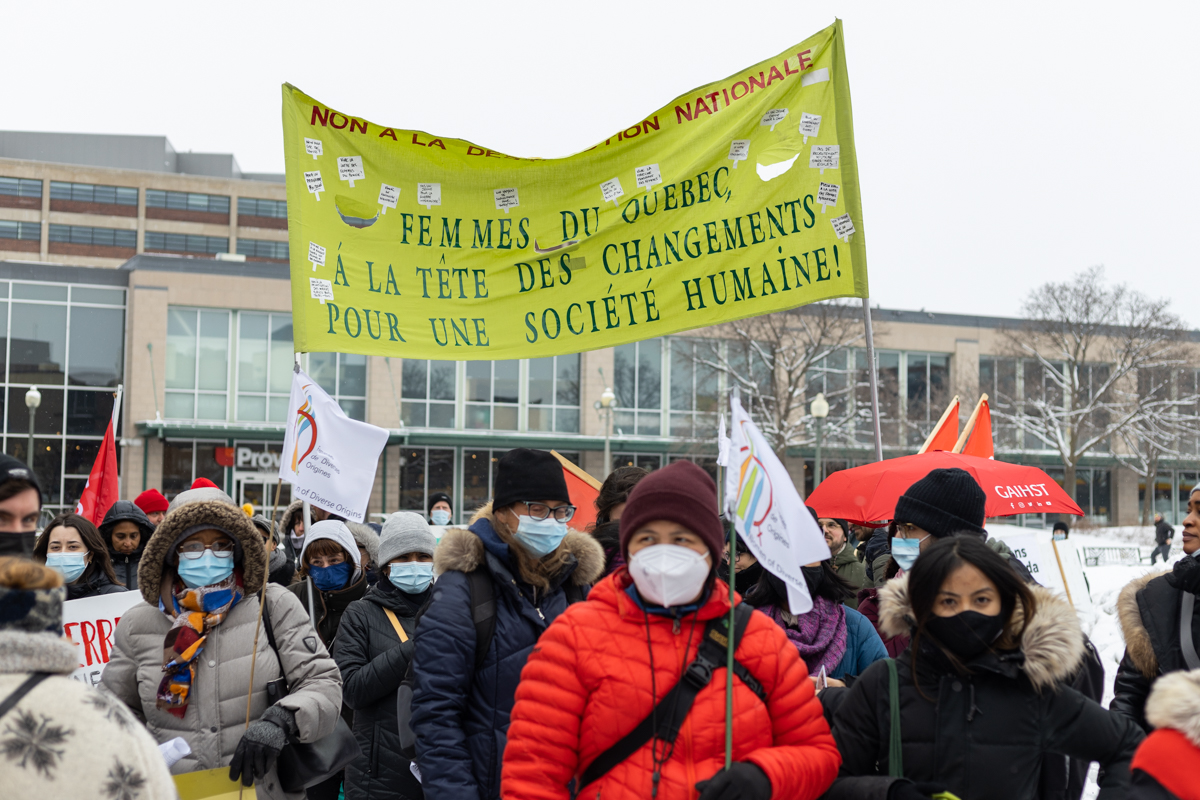“Long live image resistance, long live solidarity and sisterhood. Long live International Women’s working days,” said Ishita Tiwary, spokesperson and assistant professor at Concordia
On March 12, hundreds of Montrealers gathered at Park metro station to march in solidarity following International Women’s Day.
The main message was to show the urgency to stand in solidarity with women facing all the injustices caused by the pandemic and all the social issues happening in all communities across Montreal and internationally.
The rally is a yearly demonstration organized by the Women of Diverse Origins (WDO) organization to commemorate International Women’s Day and to recognize the history of injustices and inequalities that women face.
The organization was initially created in the wake of the Global War on Terrorism, the American-led military campaign launched following the terrorist attacks on Sept. 11, 2001.
WDO includes women from different ethnicities, religions, and ages who join together to support women’s rights and fight against patriarchy, racism, capitalism, colonialism, fascism, and imperialism.
To honour the different ethnicities that make up the organization and to better represent all these women, the WDO invited women from various cultural backgrounds to share a word at the protest.
“Our stolen sisters — we still remember [them] from all across the land,” said Wet’suwet’en elder, activist, and chef Marlene Hale.
“Whether it’s one thing or the other, with the Indigenous, the non-Indigenous, for the coloured, we have been there before for each other.”
Kavitha Culasingam, a community organizer with the Centre des femmes d’ici et d’ailleurs, pointed out how the rise in violence against women and femicide in Quebec jeopardizes women’s rights of living equitably.
The Honourable Maryam Monsef, Minister for Women and Gender Equality and Rural Economic Development Canada, and Isabelle Charest, Minister for Education, shared a statement on March 2021 stating the COVID-19 pandemic increased the rates and severity of sexual and domestic violence against women in Quebec.
“It is important to remember that we can lose our rights at any time, and [we should] continue to fight,” said Culasingam.
Culasingam highlighted women’s injustice in Quebec. Alee Coloma, a spokesperson of PINAY Quebec, an organization for migrant and immigrant Filipino women, called attention to the wars happening around the world and the injustices that follow.
“When we talk about war, we are not foolish enough to think that war is only happening in Ukraine. War is everywhere. In Europe, the Middle East, in Africa, in South America and Asia […] and who does war affect to the most, but women and children?” said Coloma.
During wars, women are particularly vulnerable to sexual violence, abuse and exploitation while caring for their families.
Ishita Tiwary, spokesperson and assistant professor at Concordia said, “On this day, we raise our voices to demand peace, NATO provocation and the immediate withdrawal of Russian troops from Ukrainian borders.”
Another solution suggested by Hélène Bissonnette, a member of the Socialist Fightback Students organization, is to transition into a socialist society.
“You see all the rise of violence in women, you see the rise of inequality, you see the attacks of abortion in the U.S. and across the world, they are real concrete reasons to fight against women’s oppression. But the root of all this, what we are seeing is that as the capitalist system,” said Bissonnette.
Photos by Catherine Reynolds
